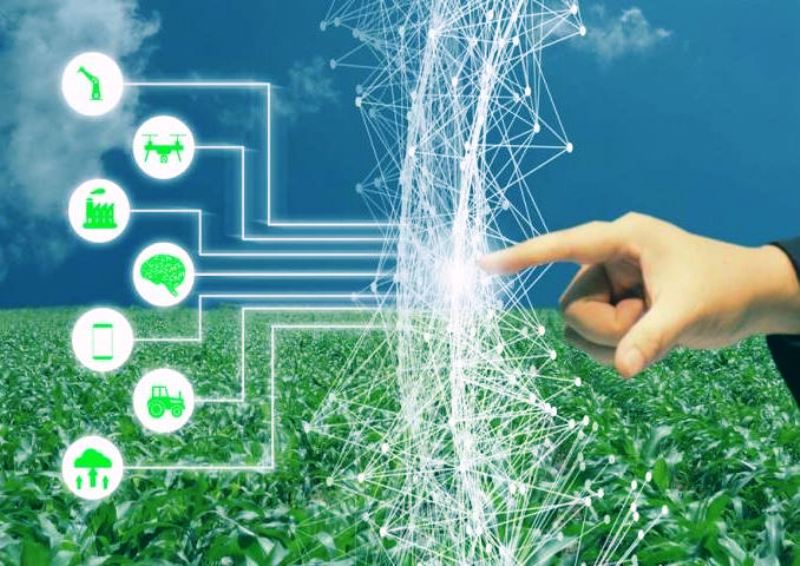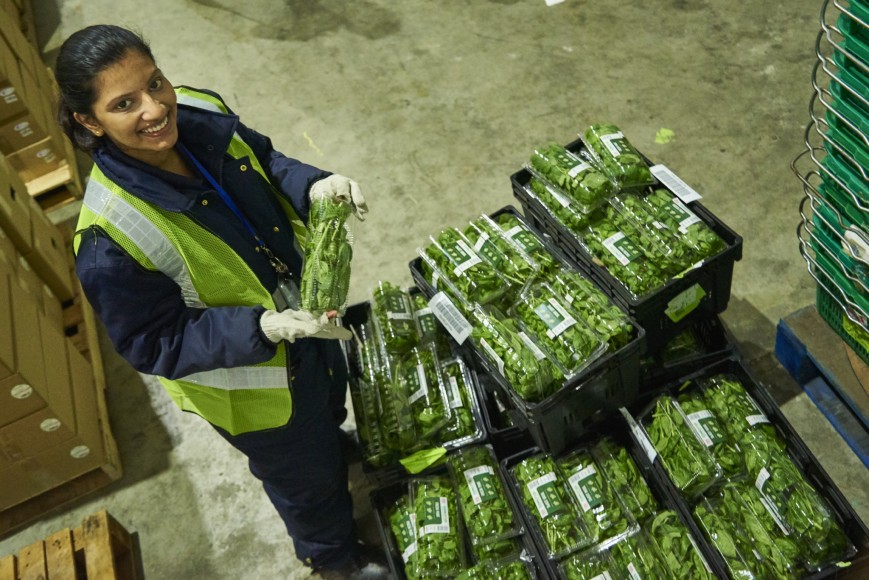Covid-19 has wreaked havoc on businesses around the world. That’s more than obvious. How are fresh produce businesses coping? We spoke to Vivek Dhume, head of the North America fruit and vegetable business at Future Group , to gain his perspectives on the US situation. This interview was conducted in March 2020.

What impact are you seeing in the broader food business? How are the different stakeholders (farmers, growers, traders, food processors, retailers, and so on) impacted?
Too early to quantify the impact, but the after-effects are going to be scary – especially the indirect effects. Today in North America, demand is at the peak , people are gearing up and stocking, but soon with employment loss, income levels are going to come down and they will start purchasing only the essentials. Specialty products will see a sharp decline, people will not know what to do! Labour is going to become a big issue. With people migrating, we don’t know about labor availability during harvest. It’s difficult to quantify that impact, but we can only hope that things will not go in a spiral.
What are the lessons should the growers, packers, food companies, and retailers learn from other countries?
In terms of other countries, only China is the one that has been through the cycle and emerged out. When I take China as a base, it is very difficult to say, as nobody knows the real story. I don’t trust any news or data coming out of China. They say things which are unreal and unnatural; sometimes when I hear stories, I think “how is that possible”. For a normal business, I would not benchmark China for how things will work. But what I believe is that we are in the industry of health or indirect health. If we take a position quickly, if people realize the need of having healthy products (F&V)… the impact will be less as compared to other industries. There will be generic growth, but we will certainly see a spike in the industry if it is managed well in terms of communication.
What is the worst-case scenario (or ‘doomsday projection’) in your mind, from an overall food/agribusiness perspective?
As I said, the purchasing power will come down; people will choose what they want to buy and will buy only the basics. How long will this last is anybody’s guess but we have to be ready for a long haul. Consumers have two behaviors: faith and fear. And if fear runs for long it turns into faith. So the industry will get people to believe in need or will fear them to believe.
Do you see/anticipate any panic in the food companies like Driscoll’s, Delmonte, Chiquita, etc?
It is not about panic but Sustainability. Nobody has a problem with the business if people understand how to recover the fixed cost at this time. So when things come to normal, you will be in a stronger position. How many people will be able to sustain for those 3 months or 5 months!!! Retail foodservice will certainly bounce back. Showing the differentiation, in terms of the importance of food safety, how and where they are buying from, etc to alleviate the fear and concern will be the key. E-Commerce is showing growth but that’s temporary. For new generations, the change might happen, but the older generation from the 70s, 80s, 90s, like to touch and feel. After 10 years maybe the share of eCommerce will change permanently. People will get used to e-commerce but brick and mortar will continue to play a big role. In the end, e-commerce is also using the human body for delivery. Unless a company can alleviate that fear, and deliver through robots, the fear around delivery will continue to grow and we will be back to normal status.
What has been the role of the government in handling the pandemic?
It is a simple analogy; if you have to jump from an airplane, the crew will try to ensure that you have the requisite parachute to ensure you land safely. What happens when you land will be dealt with once you have touched down. I think the government is doing that, saying how do I curtail. So they are doing the right step by saying stay inside as the human body is the transmitter. So first they are providing the parachute; what you will do after landing…we will figure out once we all have landed safely.
What steps is the industry taking to ensure the safety of labor and other people involved in ensuring a continuous supply of food?
At this moment it’s about building confidence, and saying it’s a difficult time and we need to be together. They are taking care of the basic needs of the employees and ensuring there are no difficulties for basic requirements.
We are talking consistently with people and ensuring continuous communication from the leadership team. They should not feel left around. Of Course, there is work from home, protective equipment, health kits, washing hands also. We also are trying to get health officials to talk to them and alleviate their fear. Based on how long it lasts, we will have to take a rain check and see. At this moment if you ask anybody, no one knows how to react, It has hit so fast. By April only we will have clarity for people to understand how to react and what measures to take. People don’t know how to handle change and it will take time to get clarity, at the moment everyone is just in reaction mode without much thought.
What is your one advice to startups?
I think this is the time to maintain your trust in the right people so that once the conditions are back to normal, you will be in a position to grow. If you have access to the right people, this is the time to grab those right people, because it is going to come back. It is a matter of time, but if you are able to sustain yourself, you will be in the best position to grow.
I am sure your employees are a worried lot. What steps are you taking, to ensure their safety? How are you inspiring them to continue giving their best shot? At the end of the day, these people are the unsung heroes who are ensuring that masses get their daily food needs.?
At this moment it’s about building confidence, and saying it’s a difficult time and we need to be together. We are taking care of basic needs – work from home as far as possible, access to health kits, protective equipment, and so on. We have had medical professionals regularly visiting our offices and guiding our people. Constant communication helps in easing the nerves.
Note – This is the complete, unabridged interview. A shorter version of this was originally featured on AgfunderNews.



.png)


